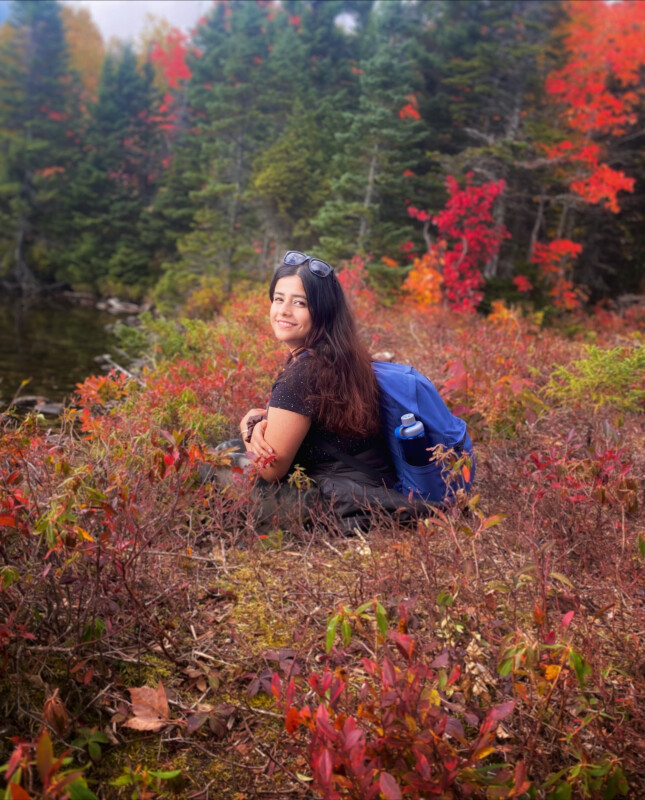Research for a Better Future: Meet Jhanvi Saini
 Climate change is one of the biggest challenges facing our world today and Cape Breton University student, Jhanvi Saini, wants to be part of the solution. From Chandigarh, India, Jhanvi is currently in her second year of the Bachelor of Engineering Technology Environmental Studies Program (Advanced Standing – Post-Degree Pathway). This summer, she took part in the Community Student Research Connections Program (CSRSP) at CBU.
Climate change is one of the biggest challenges facing our world today and Cape Breton University student, Jhanvi Saini, wants to be part of the solution. From Chandigarh, India, Jhanvi is currently in her second year of the Bachelor of Engineering Technology Environmental Studies Program (Advanced Standing – Post-Degree Pathway). This summer, she took part in the Community Student Research Connections Program (CSRSP) at CBU.
Partnered with the Bras d’Ors Biosphere Reserve Association, Jhanvi worked on a research project aimed to understand the long term effects of rising sea levels. “It has been a very knowledgeable experience,” says Jhanvi, who had the opportunity to gain valuable research insights from Chair of the Association, Chris King. “The project set out to map the shoreline of Baddeck Bay from the cove by the Inverary to the head of the Bay. We are trying to gather and record information on the way the shoreline has been modified with rock, wood or other structures.”
In 2011, the Bras d’Or Lake and its watershed area were designated a UNESCO Biosphere Reserve in recognition of the community’s efforts to foster a healthy environment, economy and culture. Jhanvi says the overall ambition of the research efforts are to understand the area’s vulnerabilities associated with the rise in sea levels and storm surges.
Jhanvi encourages her fellow students to take part in research opportunities such as the CSRSP as they allow students to connect with the community, enhance their resumes and open the door to future career opportunities. Jhanvi’s love of research was sparked back in India when she worked under the guidance of Dr. Monica Garg, a prominent scientist and researcher at the National Agri-Food Biotechnology Institute.
In the future, Jhanvi hopes to become a leader who contributes to technological solutions that ensure a better future for the next generation. She has already published two research papers – Climate Smart Agricultural Technologies in Rice-Wheat Water Stressed Regions of Punjab, India and Global Warming – Causes, Impacts and Mitigation Strategies in Agriculture, and plans to use her knowledge and skills in a world that faces complex environment-related challenges.
“I think about shaping a career and life devoted to integrating technology and biology to create innovative solutions which relate to the health of human beings and the natural world alike,” she says. “My goal is to become the kind of scientist, innovator, entrepreneur and leader who contributes to our quest for technological solutions for some of today’s most urgent challenges, be it global hunger, climate change or affordable healthcare.”